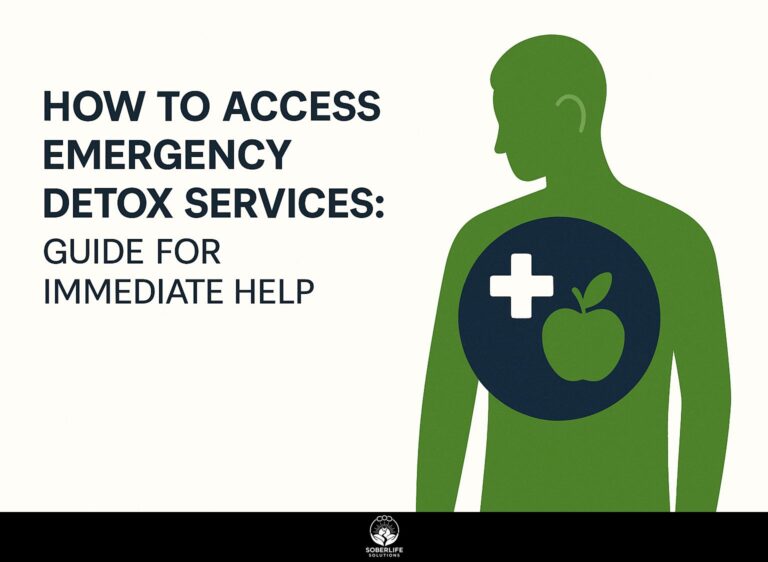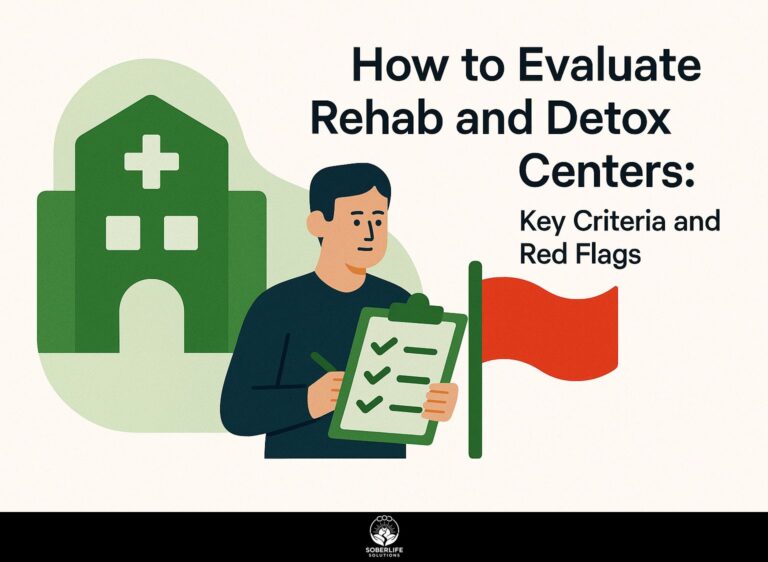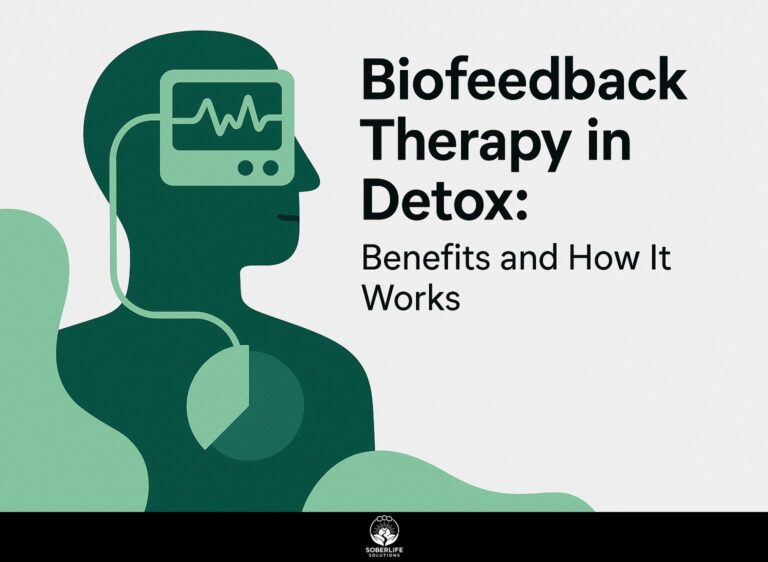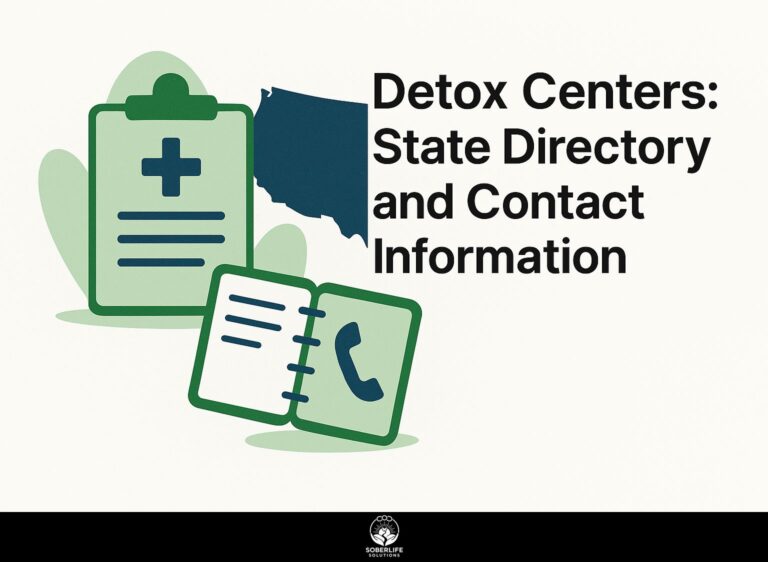Evidence-Based Approaches in Detox: Definition, Methods, and Outcomes
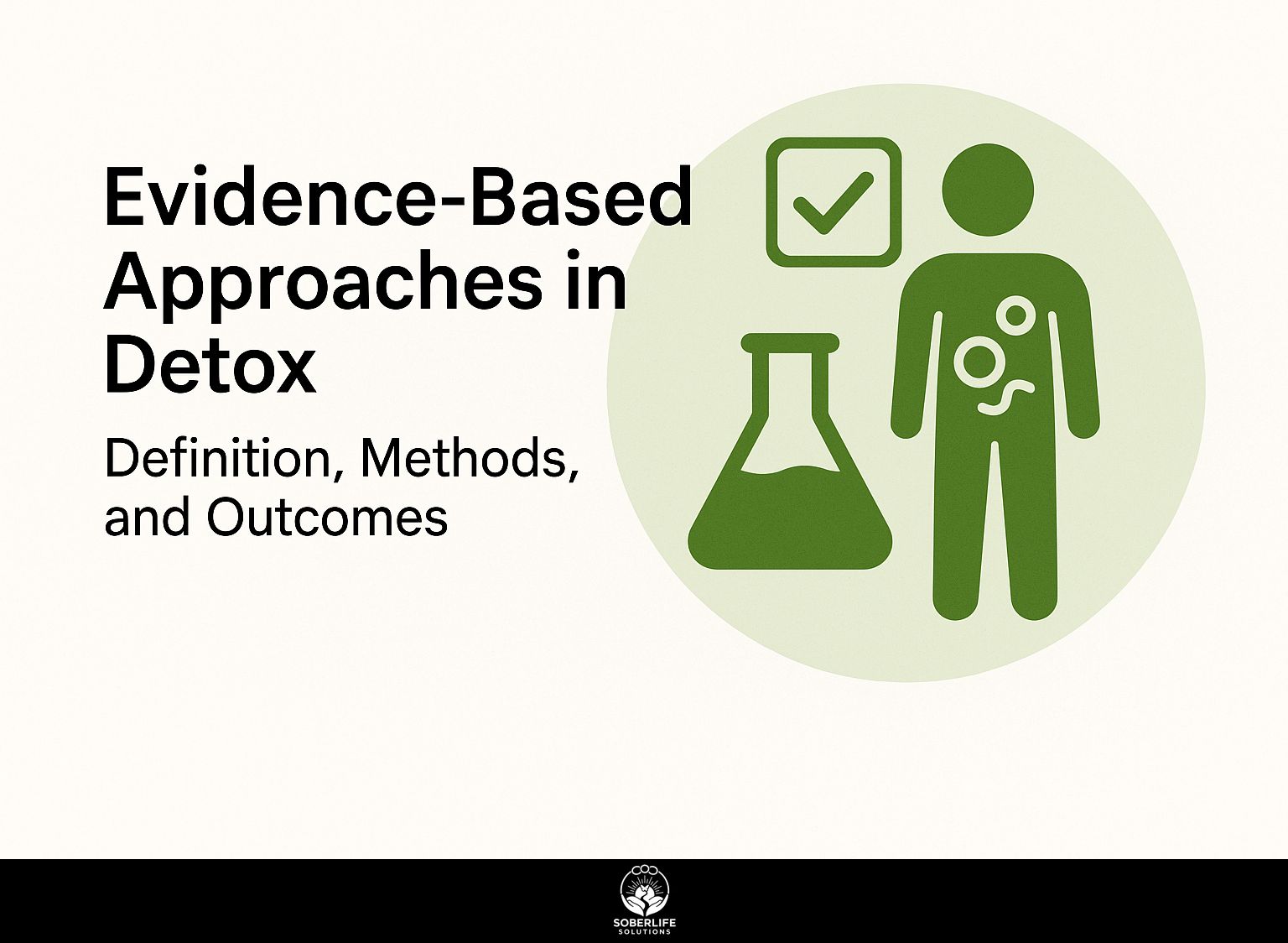
Struggling with substance use disorders, whether from alcohol problems or drug problems like cocaine dependence, can feel overwhelming. Evidence-based approaches in detoxification offer validated treatment services that effectively address these challenges. This article will explain the meaning, techniques, and results of these practices, showing how they can result in better recovery rates and healthier lives. Learn how evidence can change treatment for substance dependence and help achieve long-term health.
Key Takeaways:
Definition of Evidence-Based Practices
Evidence-based practices are treatments based on thorough clinical studies that assess how well different methods work for substance use disorders.
These methods include:
- Cognitive-behavioral therapy (CBT)
- Motivational interviewing (MI)
- Using medication as part of treatment (MAT)
CBT focuses on changing unhelpful thoughts and behaviors, helping individuals develop coping skills. MI increases a person’s desire to change, helping them commit to recovery. MAT, often utilizing medications like buprenorphine or methadone, addresses withdrawal and cravings.
Incorporating these approaches, as recommended by the Substance Abuse and Mental Health Services Administration (SAMHSA), can significantly improve treatment outcomes and support lasting recovery. For expanded context, Johns Hopkins Medicine provides a detailed overview of evidence-based practice models that further elucidates how these methods are scientifically supported.
Importance of Evidence in Detoxification
Using evidence-based methods in detox is important because it improves the likelihood that patients will stay in treatment. In contrast, non-traditional methods can have retention rates as low as 50%.
Research shows that evidence-based detox protocols can significantly improve these rates. For instance, a study in the Journal of Substance Abuse Treatment found that patients following structured, evidence-informed detox plans had a 30% higher retention rate compared to those on standard approaches.
Methods like Cognitive Behavioral Therapy (CBT) have been shown to provide long-term benefits. Regular evaluations and feedback help in changing personal treatment plans, ensuring they align with successful strategies for improved outcomes. This is supported by insights from ScienceDirect, which highlights the critical role of patient and program factors in enhancing detoxification processes.
Methods of Evidence-Based Detox
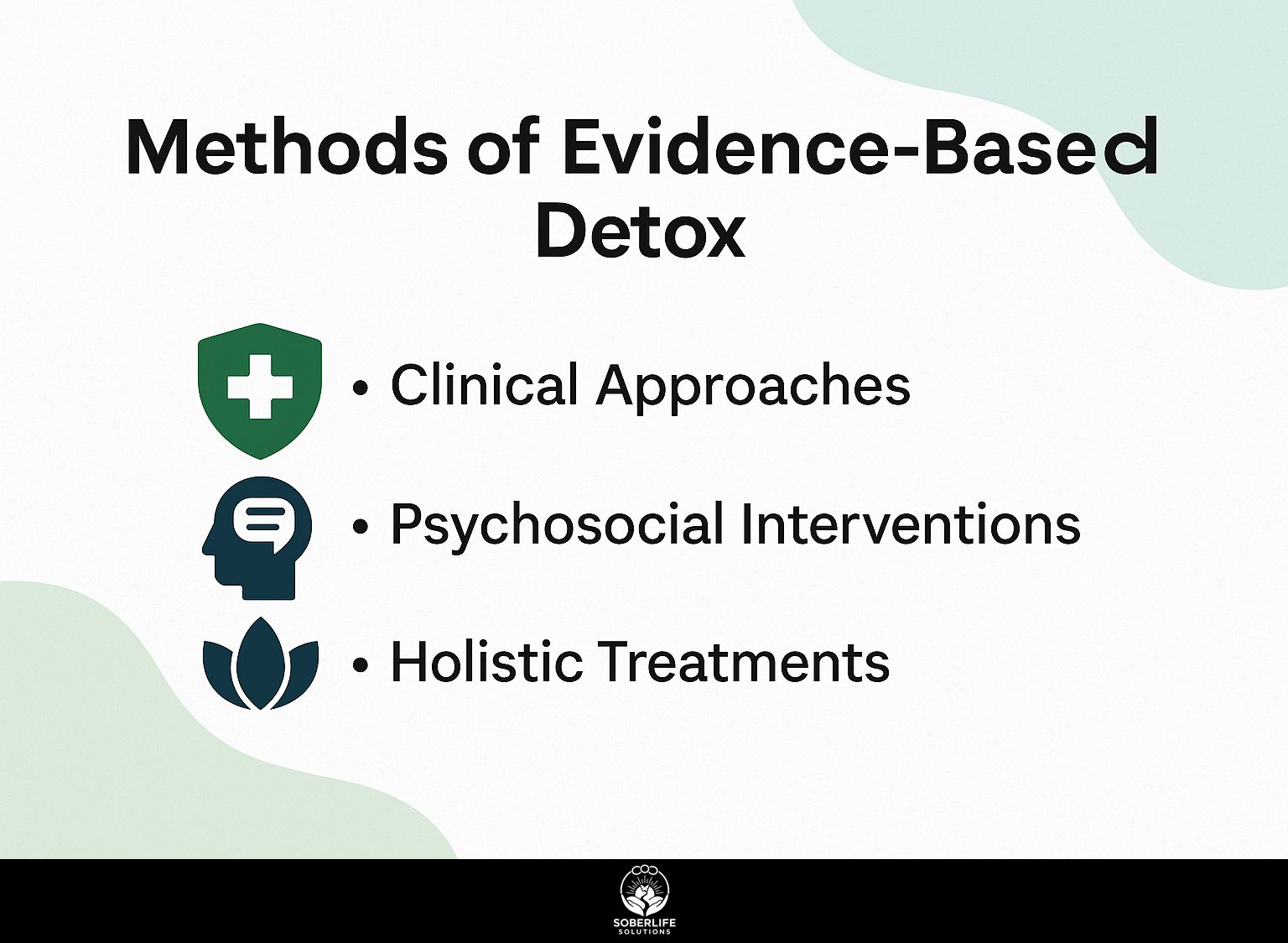
Evidence-supported detox approaches include various medical, social, and whole-person treatments meant to meet different patient needs. This includes programs that effectively incorporate peer support, which plays a crucial role in recovery. For a deeper understanding of how peer support is integrated, you can explore the concept further as mentioned in our analysis of Peer Support in Detox Centers.
Clinical Approaches
Clinical approaches to detoxification often involve pharmacological methods such as the use of methadone and buprenorphine, which support withdrawal management.
Methadone, taken orally at 20-30 mg/day, can alleviate withdrawal symptoms and cravings, maintaining therapeutic effects over 24 hours.
Buprenorphine is typically given at a dose of 4-8 mg on the first day and is effective for those who have moderate to severe withdrawal symptoms. Both medications can be tapered based on individual response, often within 7-10 days.
For effective management, clinicians might combine these strategies with psychosocial support, enhancing overall success rates and lowering relapse potential. Individual treatment plans help achieve better outcomes – a conclusion supported by the Substance Abuse and Mental Health Services Administration.
Psychosocial Interventions
Therapies such as Cognitive Behavioral Therapy (CBT) are important for addressing the fundamental behavioral issues linked to substance addiction.
CBT focuses on modifying harmful thought patterns and behaviors, promoting healthier interactions within families and workplaces.
For instance, therapy sessions can help individuals identify triggers that lead to substance use, enabling them to develop coping mechanisms.
Activities like role-playing and problem-solving exercises can improve communication skills, strengthening relationships with family members.
Research shows that people who participate in CBT while recovering have better relationships with their families and do better at work, which helps them stay sober over time.
Using these methods regularly can cause significant lifestyle changes and create a better environment for recovery.
Holistic Treatments
Treatments like mindfulness and yoga are becoming more acknowledged for their part in improving general health during detoxification.
Using these practices with traditional detox methods can improve recovery results. For example, doing mindfulness meditation daily can reduce anxiety and help with emotional healing, while yoga enhances physical health and boosts energy.
Many facilities now offer integrated programs, combining medical treatment with yoga sessions and guided meditation workshops. A study found that patients who participated in these complete health practices experienced 30% less withdrawal symptoms than those who did not.
This method creates a helpful setting for long-term recovery.
Outcomes of Evidence-Based Detox
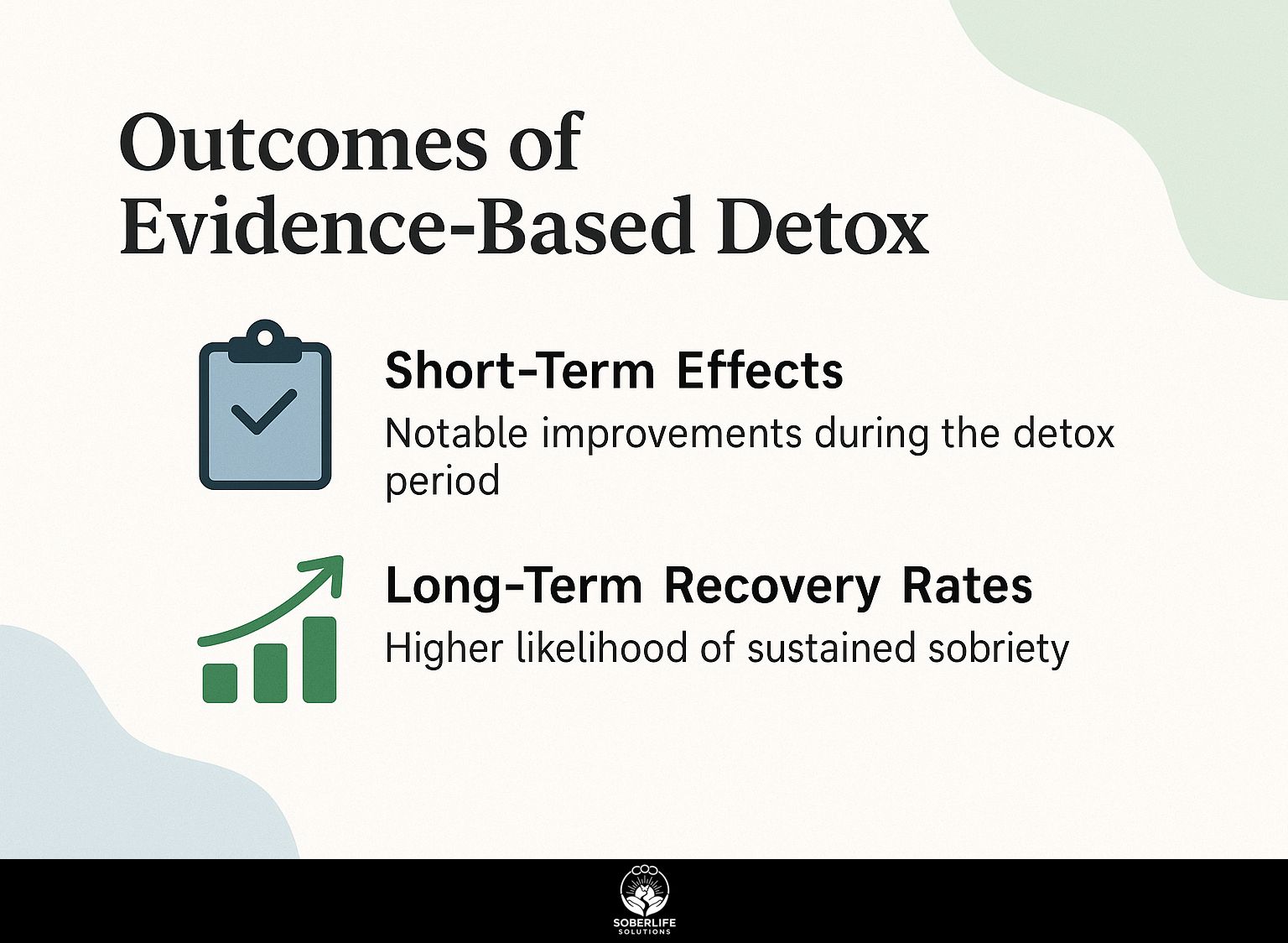
Detox programs based on evidence can effectively reduce immediate withdrawal symptoms and increase recovery success over time.
Short-Term Effects
Short-term effects of evidence-based detox methods can alleviate withdrawal symptoms within 24-48 hours, enhancing patient comfort.
Methods like medically supervised detoxification use medications such as clonidine to lessen symptoms. Research indicates that patients experience a 50% decrease in anxiety levels within the first two days.
Incorporating nutritional support, such as vitamin therapy, can also lead to increased patient satisfaction; a recent survey found that 85% of participants felt significantly better after nutritional interventions.
Using cognitive behavioral therapy during detox can improve emotional balance, with 90% of patients reporting satisfaction after treatment.
Long-Term Recovery Rates
Long-term recovery rates for evidence-based detox programs can exceed 70%, demonstrating the importance of sustained clinical support.
For the best results, combining cognitive behavioral therapy (CBT), treatment with medication, and regular support group meetings can greatly improve recovery outcomes.
For instance, individuals participating in CBT often learn coping strategies that lead to better emotional regulation and reduced relapse rates. Using MAT can effectively manage withdrawal symptoms, and support groups offer important community and accountability.
Programs that include these elements show better recovery rates and a better quality of life for those involved.
Challenges in Implementing Evidence-Based Detox
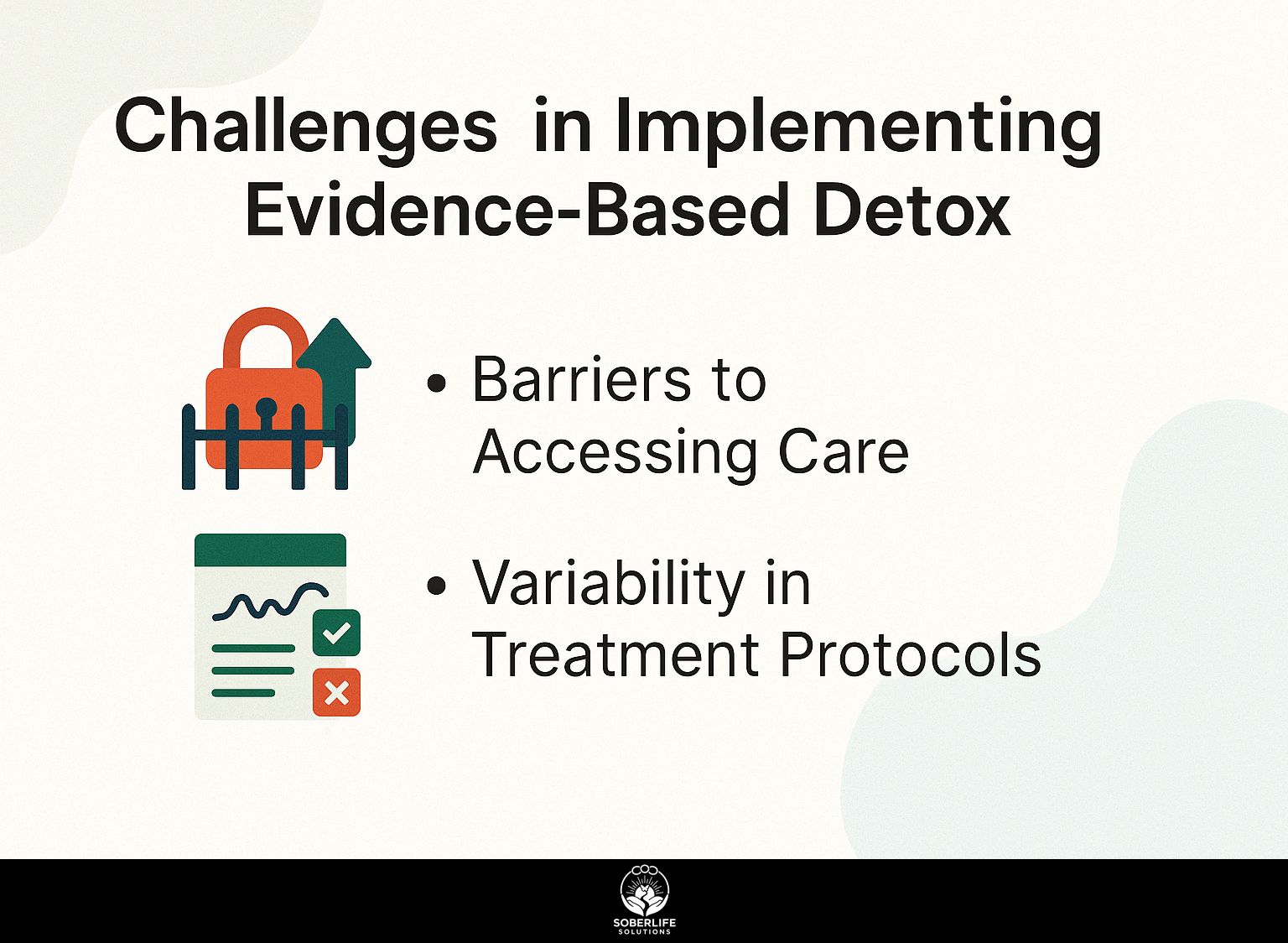
Although they are helpful, putting evidence-based detox methods into practice has major obstacles that can limit patient access and how well treatments work.
Barriers to Accessing Care
Barriers to accessing evidence-based detox care include geographic limitations and socio-economic factors affecting patient engagement.
To tackle these issues, think about using telehealth services that provide online consultations and check-ups, allowing you to receive care from any location.
Programs like Bright Heart Health provide personalized detox plans through online services, focusing on people in remote areas.
Community outreach initiatives can bridge gaps by hosting local workshops and education sessions, highlighting available resources.
Working with local health groups to offer mobile detox services helps make sure people in underprivileged areas get the care they require.
Variability in Treatment Protocols
The variability in treatment protocols across health organizations can lead to inconsistent outcomes in detoxification services.
Following reliable methods regularly can significantly increase the chances of successful treatment. For example, using protocols like the American Society of Addiction Medicine (ASAM) criteria makes sure all clinicians agree on how to assess patients and plan their treatment.
An example of successful standardization is the integration of the SBIRT (Screening, Brief Intervention, and Referral to Treatment) model in community health centers, which has increased early intervention rates.
Tools like electronic health records (EHRs) make it easier to document and follow standard procedures, improving patient care.
Future Directions in Detox Research
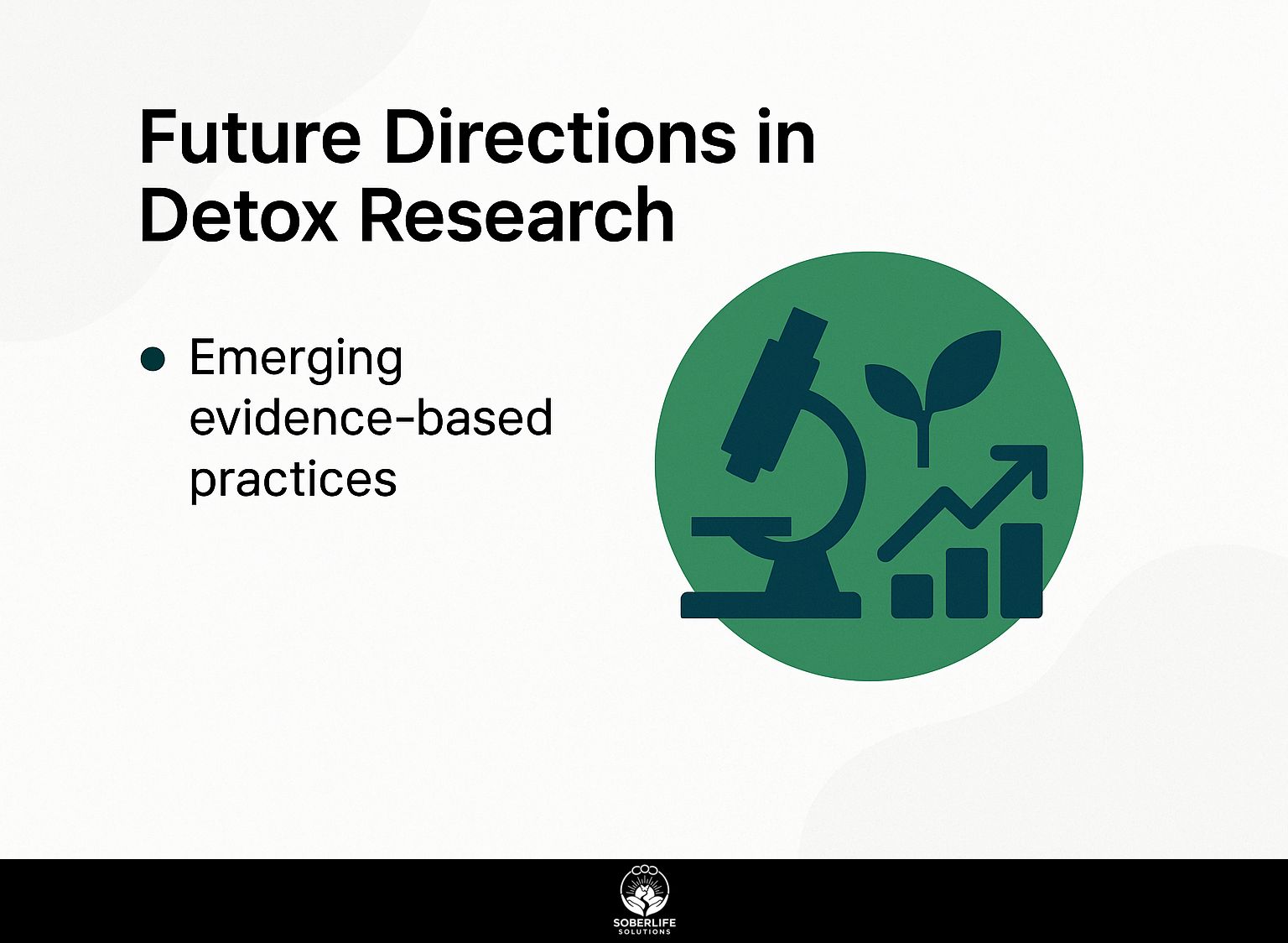
Current detox research is looking for effective ways to improve treatment results and make patients happier. Those curious about how external factors might be influencing these advancements might appreciate our in-depth exploration of COVID-19’s impact on addiction.
Emerging Evidence-Based Practices
Emerging evidence-based practices, such as the use of new pharmacological agents, are showing promise in enhancing detox outcomes.
Recent clinical trials highlight two significant innovations: the use of buprenorphine and the administration of gabapentin during detoxification.
Buprenorphine, commonly used for opioid dependence, has been shown to reduce withdrawal symptoms and cravings effectively, leading to higher retention rates in treatment programs. Simultaneously, gabapentin has gained attention for its ability to alleviate anxiety and discomfort associated with withdrawal, improving patient comfort.
Research done in 2023 showed that using these treatments together cut withdrawal symptoms by 30%. This suggests a useful approach for doctors to improve detox methods.
Frequently Asked Questions
What are evidence-based approaches in detox?
Evidence-based approaches in detox mean using methods and techniques that have been scientifically tested and shown to work for treating substance abuse and addiction. These methods are based on research and data, and are customized to fit each person’s unique needs and situations.
What is the definition of evidence-based approaches in detox?
Evidence-based approaches in detox involve using methods and treatments that research and data have shown to work. These methods are regularly updated and improved with new research and results.
What are the methods used in evidence-based approaches in detox?
The methods used in evidence-based approaches in detox can include medication, behavioral therapy, and support groups. These methods are picked because they work well for substance abuse and addiction. They are customized to fit each person’s unique needs and situation.
How do evidence-based approaches in detox differ from traditional methods?
Evidence-based approaches in detox differ from traditional methods in that they are based on scientific evidence and data, rather than just tradition or personal experience. These methods keep changing and getting better as new research and discoveries are made.
What are the outcomes of evidence-based approaches in detox?
The outcomes of evidence-based approaches in detox can include improved physical and mental health, reduced drug or alcohol use, and an increased likelihood of successful recovery. These approaches have been shown to be more effective in achieving long-term sobriety compared to traditional methods.
How can I find a detox program that uses evidence-based approaches?
You can find a detox program that uses evidence-based approaches by researching different treatment centers and asking about their methods and approach to detox. Choose a program based on scientific research and suited to your specific needs for the best chance of a successful recovery.

